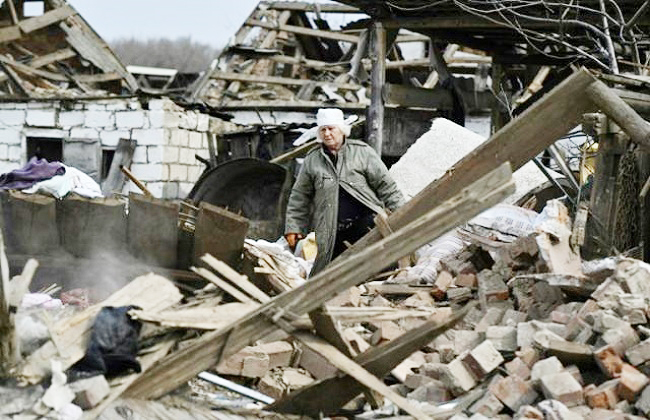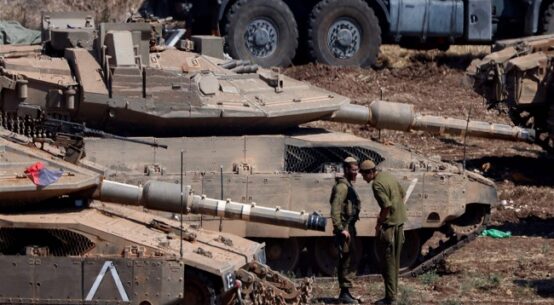
Wandering among the ruins, Svitlana Zavaly was searching desperately for anything that could be salvaged from the rubble of her home destroyed by a Russian bomb in north-east Ukraine.
“We’ve got nothing left,” said the 67-year-old resident of the village of Velyka Pysarivka that lies just five kilometres (three miles) from the Russian border.
For around ten days in mid-March, Russian bombs, shells and rockets rained down on the village and others along the frontier, in apparent retribution for incursions into Russia by pro-Kyiv Russian fighters.
“We had everything. And in an instant, this happened. It’s a good thing we had left two days earlier,” said Zavaly, wearing an oversized mackintosh, a white scarf around her hair and orange gardening gloves.
She and her husband had returned just for the day. They are living temporarily in Okhtyrka, a town about 40 kilometres west of Velyka Pysarivka, where they were evacuated like many other residents of the bombed areas.
On 17 March, a neighbour who had stayed in the village that had a population of 4,000 before the war, called her at 4 am.
“He said that a bomb had hit our house directly. And just like that we had become homeless,” the pensioner said, her eyes welling up.
Almost all the buildings in the centre of Velyka Pysarivka were destroyed in the waves of Russian strikes.
Fighting flared up on March 12 when Russia claimed to have repelled incursions from Ukraine on two border regions.
Not far from Velyka Pysarivka, pro-Kyiv fighters from the Russian Volunteer Corps and Sibir attacked their homeland.
Further to the north, incursions were carried out by the Freedom of Russia Legion.
A fighter from one of those units told AFP on March 12 the attacks were aimed at striking Russian President Vladimir Putin’s regime ahead of elections that saw him claim a new six-year term.
But over a fortnight, 567 strikes were recorded by local authorities in Velyka Pysarivka and surrounding villages, including 200 from powerful aerial bombs.
“We left on the 14th, Thursday… from hell. We were being bombed, planes were flying,” said Valentina, a 67-year-old resident, not wanting to give her surname.
Oleksiy Moroz, 38, said he knew that when the pro-Kyiv fighters launched their assaults across the border “there would be a boomerang effect”.
“On the 13th, the air strikes began. On the night of the 13th to the 14th, (Moscow’s forces) struck all night, without interruption,” said his wife Yulia Drokina, 33.
“On the morning of the 14th, we left in an evacuation bus under intense bombardment… It was no longer possible to stay.”
Asked why they thought the pro-Kyiv fighters had staged their incursions, several residents told AFP of a rumour that Russian troops had amassed on the border and were preparing an attack.
“We were afraid that if the (anti-Kremlin Russian) battalion didn’t intervene, we might be under occupation,” said Drokina.


